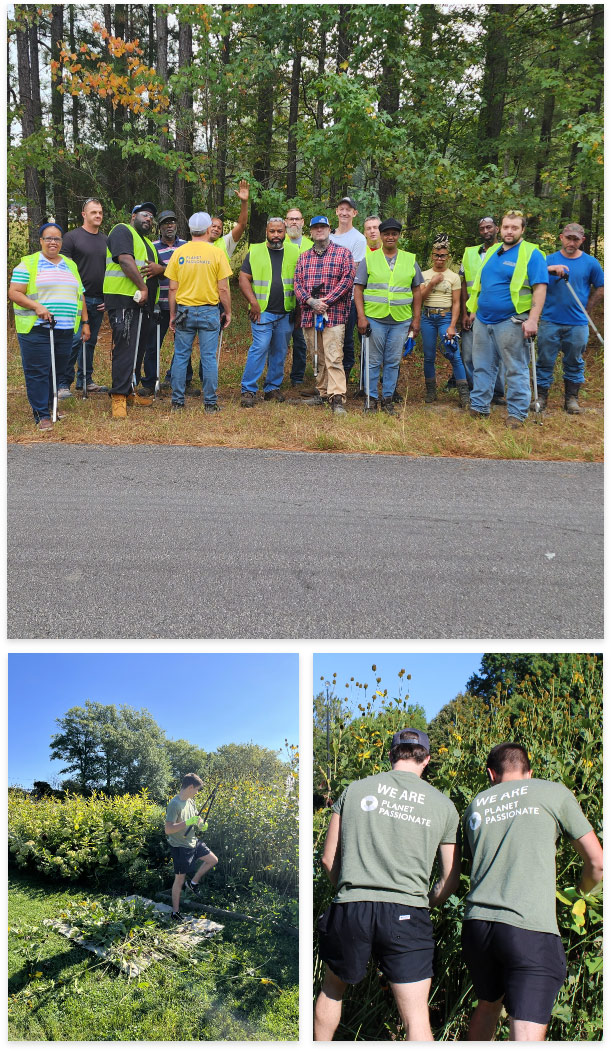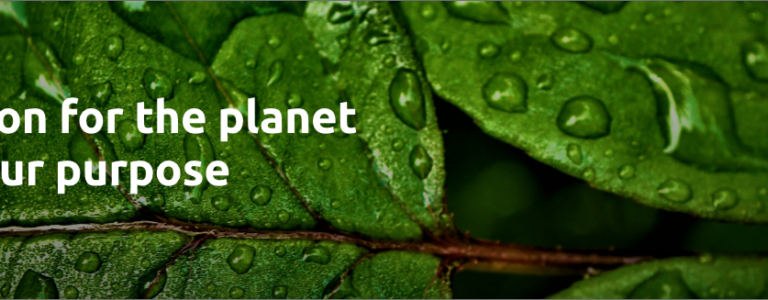
Our sustainability strategies reflect the vision of our customers, our company and our communities.
At All Weather Insulated Panels, we’re giving our customers the innovative products and services to develop the built environment of today while considering the impact on the natural environment of tomorrow. We’re prioritizing sustainability by seeking continuous improvement in our company-wide operations while supporting the communities across North America where we work and live.
Serving our customers
At All Weather Insulated Panels, we believe in providing the sustainable choices that today’s customers seek through our innovative digital services and energy-efficient building solutions. That’s how we empower our customers to achieve a better future for our planet.
How insulated metal panels contribute to green building certifications
While no single product contributes points or guarantees that a WELL or LEED® credit can be earned, All Weather Insulated Panels supports qualifications and resources for sustainable building design that address WELL and LEED concerns including:
- Rainwater harvesting
- Asbestos
- Vapor management
- Greenhouse gases
- Metrics of energy cost
Insulated metal panels support the construction of the healthiest, most energy- and resource-efficient building projects that seek certification by incorporating a range of design and material choices. Even when projects don’t seek certification, pursuing the goals of green building will lead to more informed design decisions that are better for people and the planet.
LEED Credits
Using All Weather Insulated Panels can contribute to LEED version 4.1 credits in the following categories:
 Integrated Process
Integrated Process Sustainable Sites
Sustainable Sites Materials & Resources
Materials & Resources Indoor Environmental Activity
Indoor Environmental Activity Energy & Atmosphere
Energy & Atmosphere Water Efficiency
Water Efficiency Innovation in Design
Innovation in Design
Connecting our communities
Through our sustainable practices, we’re supporting the people and preserving the places across North America where we live and work.
For the greater good
Our Planet Passionate Communities initiative empowers employees to volunteer their time and energy toward park, beach and river cleanups, school supply drives and tree planting. We also participate in the Adopt-A-Highway and local food drives.
Strategies to reduce embodied carbon
Embodied carbon refers to the carbon dioxide (CO2) emitted during the construction of a building. The energy needed to extract, manufacture, transport and install materials all contribute to estimating embodied carbon levels.
All Weather is committed to reducing embodied carbon from its supply chain through strategic partnerships to incorporate materials that have lower carbon footprints. In addition, All Weather is reducing its reliance on fossil fuels operationally by integrating onsite renewable energy generation at select facilities.
All Weather supports other strategies for lowering embodied carbon across the industry, including building reuse through retrofit projects, using materials with recycled content, maximizing structural efficiency, contributing to modular construction, reducing trucks to jobsite, minimizing waste and using fewer finish materials. Even after a project reaches the end of its life, the insulated metal panels used in the original construction can be reused, which helps to reduce the environmental impact of future projects and continue to accelerate our participation in the circular economy.


Considering our impact
In pursuit of our company vision to create and retain sustainable value, we seek continuous improvement in our company-wide operations.
We’re Planet Passionate
All Weather Insulated Panels is committed to Planet Passionate, our 10-year global sustainability program dedicated to driving energy and carbon out of our business operations and supply chain while increasing our recycling of rainwater and waste and becoming more involved in the circular economy.
Our 2030 global commitments

ENERGY
- 60% direct renewable energy by 2030
- 20% on-site renewable energy generation by 2030
- Install solar PV systems on all owned facilities by 2030
PROGRESS
- In 2023, 38% of all energy used was directly renewable
- In 2023, AWIP had 3.93 Gwh renewable energy use

CARBON
- Net zero carbon manufacturing by 2030
- 50% reduction in product CO2 intensity from our primary supply partners by 2030
- Zero emission company cars by 2025
PROGRESS
- In 2023, AWIP reduced our Scope 1 and 2 carbon emissions by 29% from the previous year
- In 2023, AWIP launched our EPD’s showing our commitment to transparency and reduction in product CO2 intensity

CIRCULARITY
- 1 billion PET bottles upcycled into our manufacturing processes by 2025
- Foam products to utilize recycled PET by 2025
- Zero company waste to landfill by 2030
PROGRESS
- In 2023, AWIP had a 24% reduction in waste to landfill from the previous year (338 Tonnes)

WATER
- 26 million gallons of rainwater harvested annually by 2030
- 5 active ocean clean-up projects by 2025
PROGRESS
- In 2023, AWIP undertook water reduction projects across our facilities
- AWIP participated in river cleanups through our Planet Passionate communities initiative


 Integrated Process
Integrated Process Sustainable Sites
Sustainable Sites Materials & Resources
Materials & Resources Indoor Environmental Activity
Indoor Environmental Activity Energy & Atmosphere
Energy & Atmosphere Water Efficiency
Water Efficiency Innovation in Design
Innovation in Design